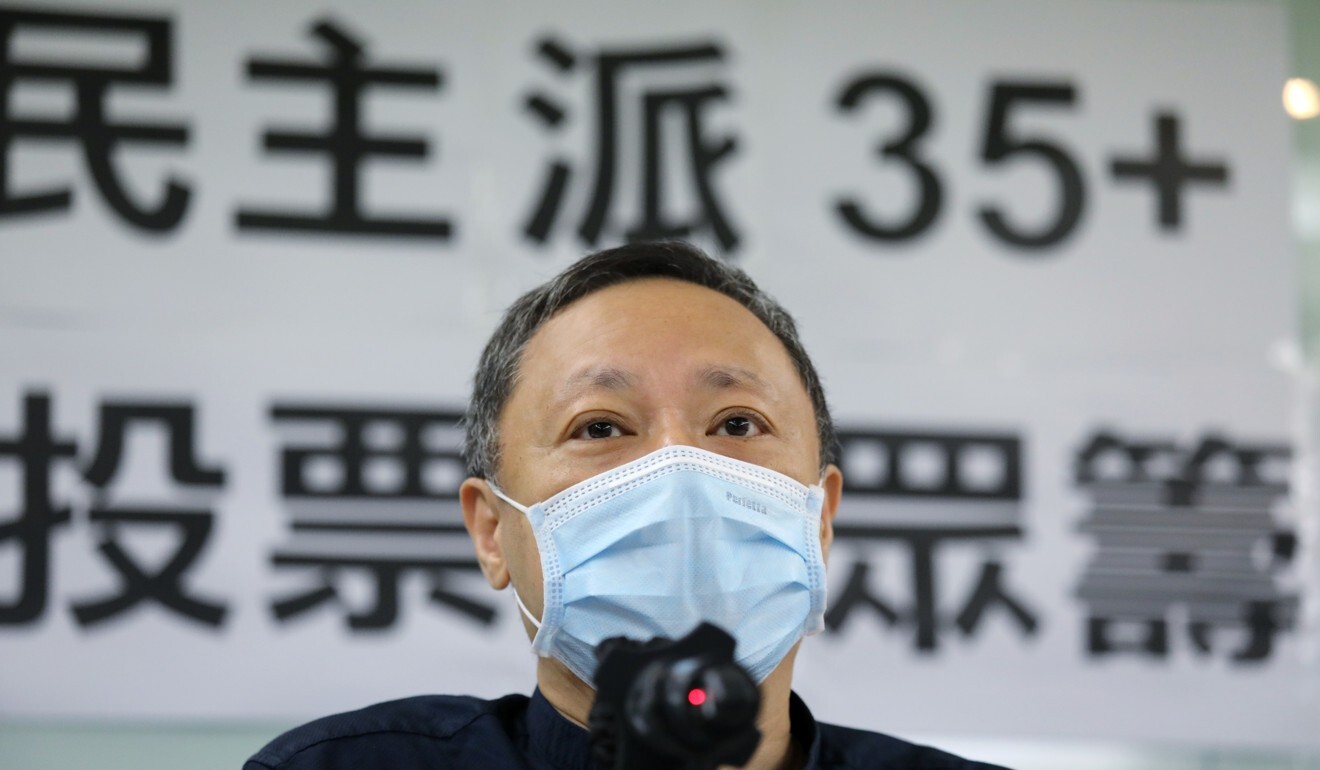
Legco elections: Benny Tai’s ‘35-plus’ strategy will take Hong Kong nowhere
- The weekend primary election was part of his plan to coordinate the pan-democratic camp to maximise votes in the September poll
- The aim is to win a simple majority in Legco, but the threat to weaponise this advantage is overstated. Playing a game of chicken with Beijing has never worked
Surely, winning a majority in the legislature constitutes no crime and, to be fair, Tsang didn’t say it would. What he did do was warn that pledging to vote down the government’s budget and paralyse the government may land primary candidates in trouble.


05:45
Hong Kong’s pro-Beijing camp reeling after crushing defeat in district council elections
Chief Executive Carrie Lam Cheng Yuet-ngor admitted her part in bringing about her allies’ crushing defeat. The loss, she said, “has a direct relationship with the government”, acknowledging people’s “dissatisfaction with the government”. The opposition hopes to ride to victory again on the back of this public dissatisfaction.
It won’t be easy. The pan-democrats have no stronghold in the functional constituencies. And since the seats for geographical constituencies and the so-called “super seats” – five seats for district council representation in the functional constituency – are returned by proportional representation, the chance for a landslide victory come September is slim.
Further, the threat to vote down the budget, thereby forcing the chief executive to first disband the legislature to form a new one, then resign if the bill is still not passed by a new Legco, is not as simple as it sounds. Voting down a budget in the wake of the ravages of Covid-19 would be unwise.
Tai’s modus operandi so far has been to make threats in the hope he could scare Beijing into making concessions favourable to his cause. He did this with Occupy. His game of chicken took Hong Kong to the fateful day of August 31, 2014 when the National People’s Congress Standing Committee adopted a decision on Hong Kong’s electoral framework that has stunted our political development since. Neither Tai’s attempt to force Beijing’s hand nor his control over the movement turned out the way he had envisioned.
Tai’s strategy did not work then, and it’s not likely to work now. Playing a game of chicken with Beijing with the threat to veto the budget and cripple the government probably won’t end well for Tai.
Alice Wu is a political consultant and a former associate director of the Asia Pacific Media Network at UCLA

